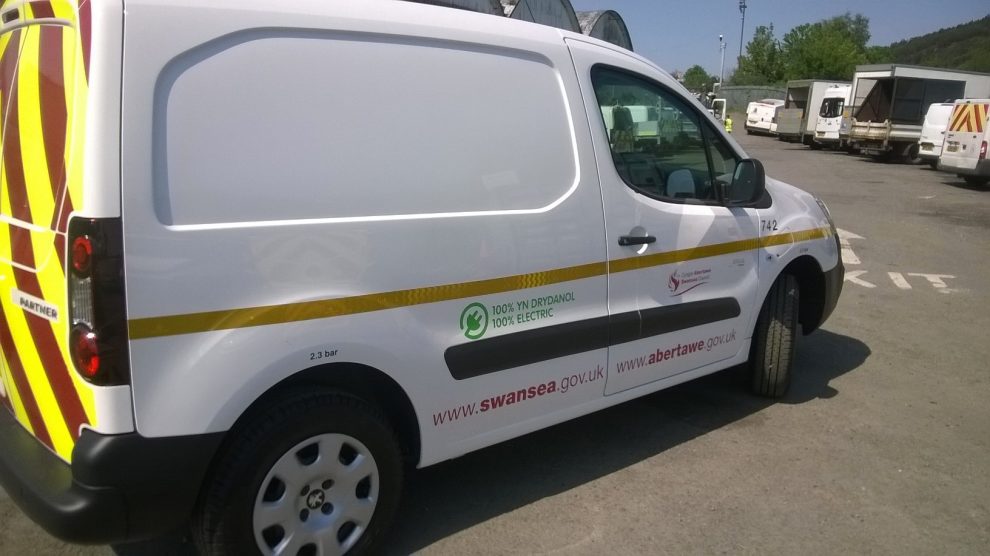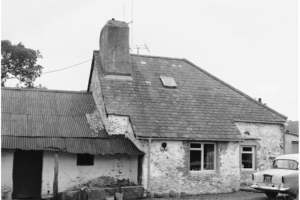REPLACING Swansea Council’s vans and lorries with electric or other low emission power vehicles could cost as much as £55 million, a meeting was told.
The council has 945 vans, lorries and other vehicles, of which 105 are fully electric and 12 hybrid.
The authority is aiming for a “net zero” fleet by 2030. This would mean its vehicles would almost entirely be ultra low-emission, with the emissions from diesel ones offset in other ways.
Mark Barrow, the council’s fleet manager, told councillors on a scrutiny panel that the scale of the challenge was “very, very significant” and that the “diesel by exception” approach was becoming incredibly difficult due to volatile market conditions. He said the £55 million price tag was very much an indicative estimate, though.
He said electric light commercial vans currently cost £33,000 compared to £24,000 for diesel or petrol equivalents, and that a 27-tonne electric refuse vehicle was £430,000 compared to £200,000 for a diesel model. The council already has one electric refuse lorry, and looked into replacing two 18-tonne skip lorries with electric versions, but Mr Barrow said they cost £280,000 each compared to £120,000 for diesel ones.
He said: “We have a significant financial gap to meet that (2030) target.”
Mr Barrow added that electric vans did, however, recover the additional upfront costs over their leasing period because electricity was cheaper than diesel. But he said electricity was becoming more expensive.
He said the huge expense of electric heavy vehicles reflected a lack of low-emission options but that it was likely hydrogen would play a growing role in the future for this sector.
But he also warned that supply chains were disrupted, prices volatile, and that technology was changing all the time. “For me to order any van at the moment it takes 12 months before it is delivered,” he said.
Turning to charging infrastructure Mr Barrow said the council had 40 electric vehicle charging points, with a further 50 expected to be operational by the end of the month. While this system enabled vehicles to be charged overnight, it didn’t address the 200 vans that council workers took home with them at the end of each day. “That makes it very, very complicated,” he said.
Mr Barrow said a further £700,000 was needed for electric vehicle charging infrastructure on the top of the £1 million already secured from the Welsh Government.
To reduce costs, he said the council was trying to make the use of vehicles more efficient, via telematics, and that council vehicles could be renewed every seven to nine years rather than the current five years.
Councillors received an assurance that the electricity for vehicle recharging was from renewable sources. Cllr Andrea Lewis, cabinet member for service transformation, said this remained her hope for the future but she couldn’t guarantee it because of the changing energy market.
Cllr Sara Keeton asked if the extra weight of electric vehicles compared to their internal combustion engine counterparts needed consideration. Mr Barrow said it did – not just for roads but for car parks and bridges.
Councillors welcomed the authority’s green ambition for its fleet and noted its high proportion of electric vehicles compared to most other councils. But the panel said “false economies” needed to be avoided.
The UK Government is banning the sale of new petrol and diesel cars from 2030, with a ban on the sale of new diesel heavy goods vehicles from 2040.
The council’s green fleet strategy is one piece of a larger 2030 net zero puzzle. It also needs to make its buildings more energy efficient and get them generating and storing electricity with solar panels and batteries. The authority’s net zero project has previously been estimated at £187 million but it’s not clear how this will be funded. The report before the panel, though, gave a figure of £175 million.
Cllr Lewis said that lobbying of central Government would continue. “We simply do not have the resources in-house,” she said.



















